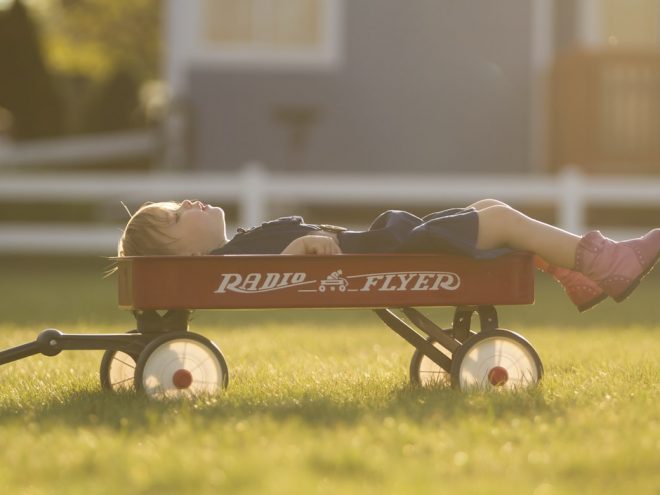
Recess Helps Children Develop Physically
Did you know that nearly 20% of American children and adolescents are obese? Overweight kids run far higher risks of growing into heavy adults. Plus, excess pounds put a severe strain on health. Obesity increases the chance of developing cardiovascular disease and diabetes, among others.Children who exercise have a leaner body composition and less fat. Several factors contribute to body composition, such as genetics. How much a child weighs, however, depends primarily on how many calories they burn vs. how many they consume.Kids need more physical activity than adults because their bodies are still developing. Exercise helps build bone mineral density. This density reduces the risk of osteoporosis later in life. Children also strengthen their muscles by running and jumping. Well-toned muscles help perform everyday activities and protect against injuries like strains and sprains.Heart disease remains the number one killer of men and women worldwide. You might wonder what this illness has to do with children. They don’t suffer heart attacks, right? The truth is, you’d be surprised. While it’s rare, children can and do suffer heart attacks, though they typically result from genetic defects.The habits children acquire when they’re young stay with them for a lifetime. Kids who adapt to a sedentary lifestyle find it more challenging to join a fitness program as adults. It’s easier to maintain heart health than improve it later in life. Kids should get at least 60 minutes of exercise each day, mainly aerobic.How can kids stay active when they sit for eight hours of lessons, then turn to the TV or tablet after hours? They need to move regularly, even during school.
Recess Benefits Cognitive Development
Exercise benefits growing bodies and bolsters cognitive development. Physical activity stimulates brain growth and boosts performance in the classroom. It also aids in the growth of neurons, cells that make up your brain and nervous system. One experiment with mice compared sedentary creatures to those who ran three miles each day. The mice that exercised showed significantly higher brain development.One area of the brain that grows with exercise is your hippocampus. This region governs memory formation and function, helping your child form long-lasting memories. This mental boost provides clear benefits in the classroom. Kids who exercise score better on academic tests that rely on recall.Unfortunately, the effects of getting your blood flowing don’t last indefinitely. You need to move every day for the best results — especially if you’re younger than 18.As a parent, you can limit screen time and take your little ones outdoors. However, scheduling can be challenging. Many parents work longer hours than ever before. Proposed solutions, such as lengthening the school day, only compound the problem. Sure, harried parents might benefit from avoiding hefty childcare costs. However, the real price for this convenience is illness and obesity.It might be wise to leave work early and head to the playground. If possible, work through lunch and leave early. Schedule a half-day off. You can also clear your weekend and plan two days of action-packed activities.
Recess Improves Behavior and Mental Illness
Obesity rates aren’t the only problem plaguing sedentary youth. Children and teenagers have more anxiety disorders than ever before. They also develop depression and other mental health issues. Regular exercise acts as a natural tension-buster and antidepressant.Statistics show ever-increasing numbers of children taking ADHD medications. Would these kids thrive more effectively with recess time and fewer prescriptions?Experts claim that, when children need medications for psychological disorders, exercise can complement therapy and prescriptions. Physical activity can help children process painful emotions like grief. Plus, much to the delight of teachers everywhere, working up a sweat helps kids control their behavior in the classroom.For years, schools have preached the Bible of the Almighty Test Scores — and have reaped dubious rewards in deteriorating classroom behavior. They cut out recess time in favor of review — and saw students grow increasingly distracted and fidgety.One study examined what happened when students received four 15-minute recess breaks daily. They followed participants for two years. Students who received recess breaks showed a 25% decrease in off-task behaviors compared to those who did not.Unstructured play allows children to get to know themselves free from external pressures. It teaches them to cooperate with their peers when they make up rules for games. It empowers them to stretch their limits and explore interests that pique their curiosity.How will your child know that they want to become a botanist, for example, if you never let them explore the wild world of plants? If you force them to listen to lectures on monocots and dicots, but never allow them to smell flowers?Adults carve time out of their busy schedules to explore passions. Children need even more time. The decisions they made will impact their future careers. If they choose a professional path based on what others suggest, they risk a life of quiet desperation.Encourage children to explore their curiosities. They might dedicate one day to finding bugs outside, while another features baking in the kitchen. Some kids love to run pretend grocery stores or kiosks. These scenarios allow kids to discover their passions and explore further. Who knows — that kid pulling out handfuls of grass in the field might become an environmental engineer.
Recess — A Reward or Necessity?
Recess benefits children mentally and physically. Without unstructured time to play, our youth develop emotional problems and mental health woes. If we care about kids the way we claim to do, we need to bring recess back now.





